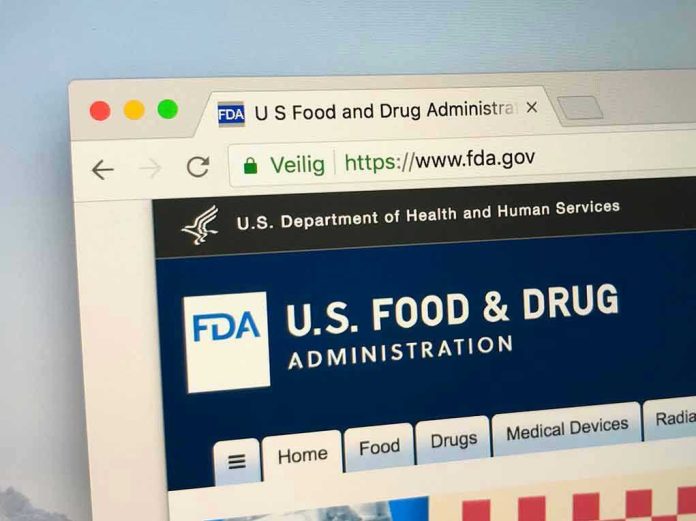
One jar of tomato sauce, manufactured without oversight, can threaten lives and topple trust in every product lining your local supermarket shelf.
Story Snapshot
- A Connecticut bakery recalled its tomato sauces over a potentially fatal botulism risk—before anyone got sick.
- Federal and state regulators moved quickly after discovering the products bypassed required safety protocols.
- Botulism is rare but deadly, and even a theoretical risk led to immediate action and public warnings.
- The event reveals how food safety lapses at small producers can ripple across communities and industries.
Botulism Risk Triggers Urgent Recall—And Reveals Industry Weaknesses
First and Last Bakery, LLC, a Hartford-based producer, faced the public spotlight in October 2025—not for a new recipe, but for a mistake that could have cost lives. Three tomato sauce products, sold in Connecticut and Massachusetts and distributed as recently as September, were yanked off shelves after state inspectors found the sauces lacked an approved manufacturing process. The problem: without a scheduled process for acidified foods, there’s no guarantee that Clostridium botulinum bacteria—causing botulism—can’t grow and produce its lethal toxin. Regulators did not wait for someone to fall ill. The recall was preemptive, a clear signal that in food safety, the absence of harm does not mean the absence of danger.
Consumers who thought they were buying a harmless jar of sauce suddenly faced warnings about a foodborne threat that rarely makes headlines but always makes history when it strikes. Botulism, a word that evokes hospital isolation and ventilators, is mercifully rare thanks to vigilant oversight. But its shadow looms large whenever food processing shortcuts slip through cracks. That shadow fell on Big Y supermarket shelves and kitchen cupboards across New England. State and federal authorities, well-versed in the lessons of past outbreaks, did not hesitate to alert the public and halt production at the first whiff of a compliance breach.
How a Regulatory Gap Exposed Consumers—and a Company
Food safety rules are not just bureaucratic red tape; they are the invisible armor protecting every meal. The FDA and Connecticut’s Department of Consumer Protection maintain strict standards for acidified foods, precisely because a single lapse can have irreparable consequences. In this recall, the sauces had not been confirmed to contain botulism—no illnesses were reported. The real issue was that the manufacturer failed to secure official approval for its process, a legal and scientific requirement for ensuring shelf-stable foods remain safe. By acting on a theoretical risk, regulators reinforced the principle that public trust cannot be gambled for convenience or cost savings.
Tomato sauce recalled due to ‘potentially fatal’ food poisoning risk https://t.co/pqGT0qMfMB pic.twitter.com/Y0GoPdZBYn
— The Independent (@Independent) November 6, 2025
First and Last Bakery, LLC, like many small producers, faces the daunting challenge of navigating complex safety regulations designed with mass outbreaks in mind. Yet, the rules exist because the stakes are so high. A single error can trigger not only recalls and refunds but also lasting reputational harm. For consumers, the episode is a reminder to check recall notices and understand that even local, seemingly artisanal products are subject to the same life-and-death standards as global brands.
The Broader Impact: From Kitchen Tables to Industry Reform
No one got sick, but the ripple effects of this recall extend far beyond the aisles of Connecticut supermarkets. Retailers like Big Y scrambled to remove products and reassure customers, while social media lit up with warnings and questions. Health authorities fielded calls from anxious shoppers and issued detailed instructions: return the sauces, get a refund, stay vigilant. Behind the scenes, other small food manufacturers likely reviewed their own compliance practices, reminded that regulatory grace is measured in hours, not months, when public health is on the line.
For the food industry, the incident serves as both a cautionary tale and a validation of the system’s effectiveness. The absence of reported illness is not luck—it is the result of a regulatory framework that prizes prevention over reaction. Food safety experts agree: the greatest risk is the one you never see coming, and the only antidote is relentless oversight. Consumers may never know how close they came to disaster, but every recall notice is a story of what did not happen—and why vigilance must continue.



